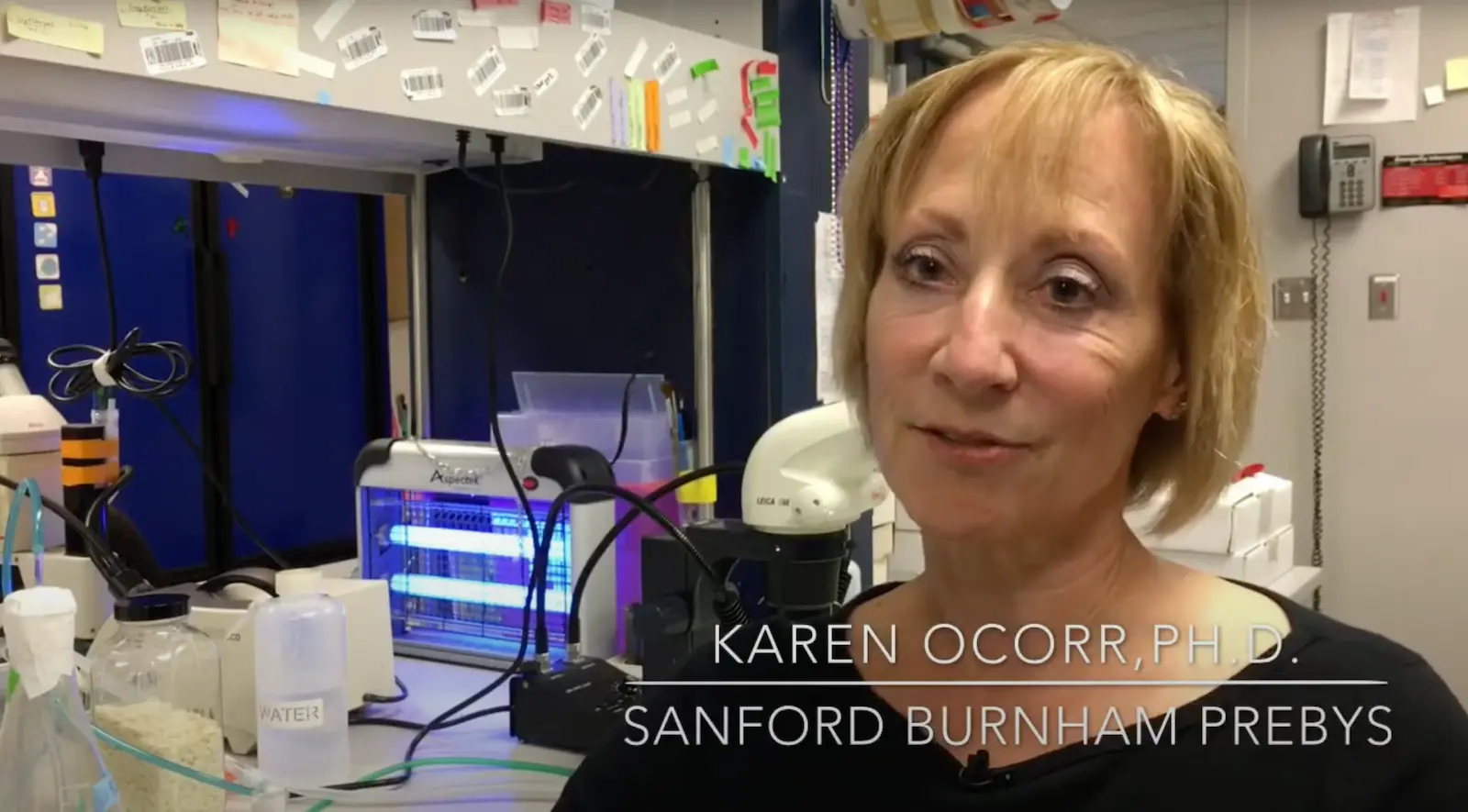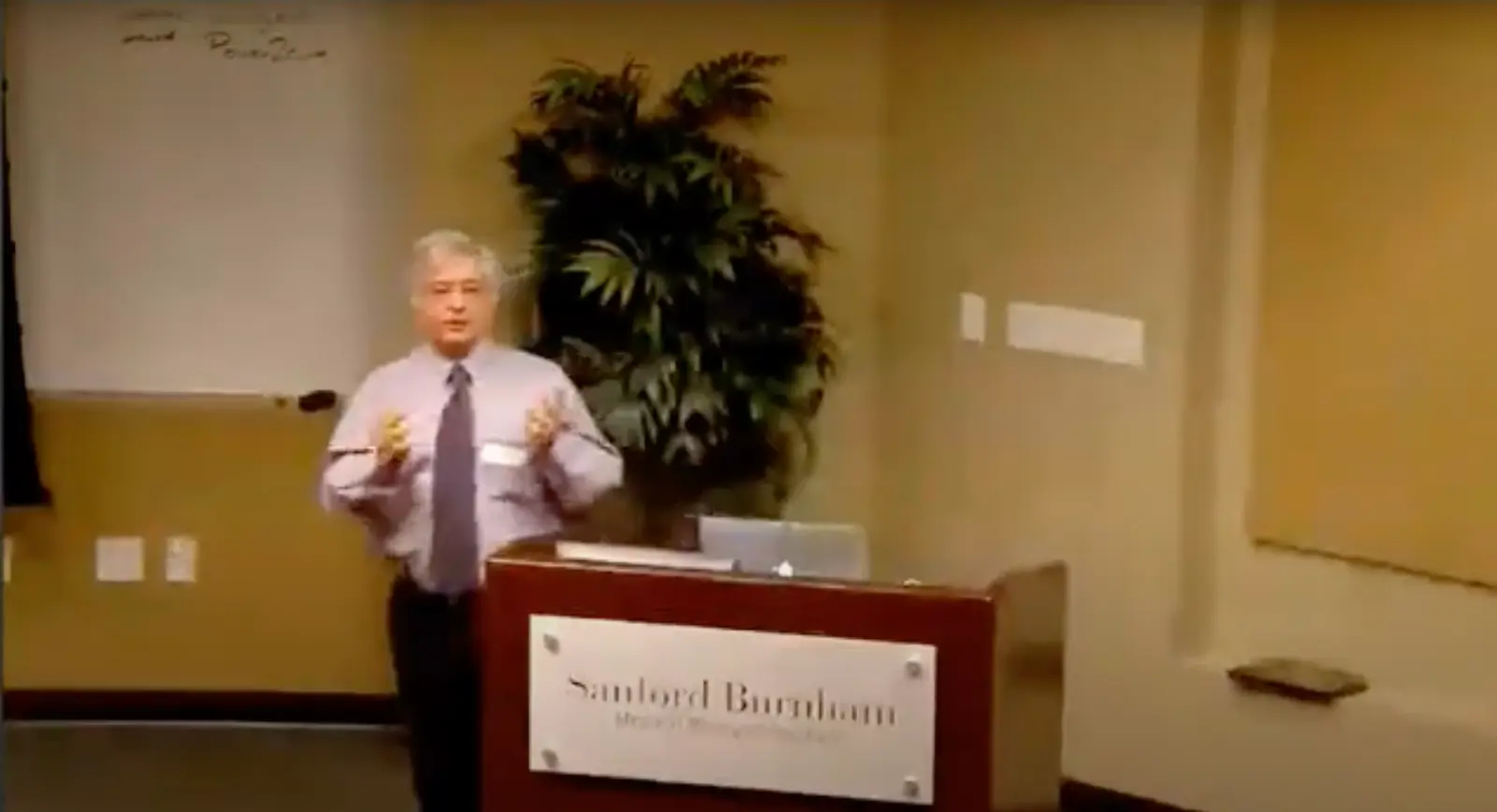Eva Engvall earned her PhD from the University of Stockholm in 1975. Her postdoctoral work was done at the University of Helsinki and City of Hope National Medical Center in California, where she was subsequently appointed to staff. Dr. Engvall was recruited to Sanford-Burnham Medical Research Institute in 1979. For 1994-1996, Dr. Engvall held joint appointments at this institute and as Chairperson of the Department of Developmental Biology at Stockholm University. Dr. Engvall’s work on the development of the Enzyme Linked Immunosorbent Assay, ELISA, has been widely acclaimed, including honors from The German Society for Clinical Chemistry, the U.S. Clinical Ligand Assay Society, and in 1995, a special award from the Ed and Mary Shea Family Foundation. Dr. Engvall received an honorary degree in Medicine from the University of Copenhagen in November 1994.
Phenomena or Process: Extracellular Matrix
Dr. Yu Xin (Will) Wang received his PhD at the University of Ottawa where he identified cellular asymmetry and polarity mechanisms regulating muscle stem cell self-renewal and skeletal muscle regeneration. He then carried out postdoctoral training at Stanford University School of Medicine developing single cell multi-omic approaches to characterize the regenerative process and what goes awry with disease and aging.
“I’ve always had a passion for science and became fascinated with how the body repairs and heals itself when I was introduced to the potential of stem cells in regenerative medicine. I was struck by the ability of a small pool of muscle stem cells that can rebuild and restore the function of muscle. My lab at Sanford Burnham Prebys aims to better understanding the repair process and harness our body’s ability to heal in order to combat chronic diseases and even counteract aging.“
Education and Training
Postdoctoral Fellowship, Stanford University School of Medicine
PhD in Cellular Molecular Medicine, University of Ottawa, Canada
BS in Biomedical Sciences, University of Ottawa, Canada
Prestigious Funding Awards
2020: NINDS K99/R00 Pathway to Independence Award
Honors and Recognition
Governor General’s Gold Medal – Canada
Related Disease
Aging-Related Diseases, Amyotrophic Lateral Sclerosis (Lou Gehrig’s Disease), Arthritis, Cachexia, Inflammatory/Autoimmune Disease, Multiple Sclerosis, Muscular Dystrophy, Myopathy, Neurodegenerative and Neuromuscular Diseases, Sarcopenia/Aging-Related Muscle Atrophy, Spinal Muscular Atrophy
Phenomena or Processes
Adult/Multipotent Stem Cells, Aging, Cell Signaling, Development and Differentiation, Epigenetics, Exercise, Extracellular Matrix, Neurogenesis, Organogenesis, Regenerative Biology, Transcriptional Regulation
Anatomical Systems and Sites
Immune System and Inflammation, Musculoskeletal System, Nervous System
Research Models
Clinical and Transitional Research, Computational Modeling, Human Adult/Somatic Stem Cells, Mouse
Techniques and Technologies
3D Image Analysis, Bioinformatics, Cellular and Molecular Imaging, Gene Knockout (Complete and Conditional), Genomics, High Content Imaging, High-Throughput/Robotic Screening, Live Cell Imaging, Machine Learning, Microscopy and Imaging, Proteomics, Transplantation
The Wang lab is interested in elucidating critical cell-cell interactions that mediate the function of tissue-specific stem cells during regeneration and disease, with a focus on how a coordinated immune response can promote regeneration and how autoimmunity impacts tissue function and hinder repair.
Specifically, the Wang lab aims to identify cellular and molecular crosstalk between muscle, nerve, and immune systems to develop targeted therapies that overcome autoimmune neuromuscular disorders and autoimmune aspects of “inflammaging.”
Yu Xin (Will) Wang’s Research Report
The lab’s research is translationally oriented and utilizes interdisciplinary molecular, genetic, computational (machine learning and neural networks), and bioengineering approaches to view biology and disease from new perspectives. We combine multi-omics sequencing and imaging methods to resolve how different cell types work together after injury to repair tissues and restore function. We use a data-driven approach to identify targetable disease mechanisms and, through collaborations with other researchers and clinicians, develop therapies that promote regeneration. Visit our lab website to learn more.
 Jun 12, 2025
Jun 12, 2025Turning back time on muscle stem cells to prevent frailty from aging
Jun 12, 2025Study from Dr. Will Wang’s lab finds a way to restore stem cells from aged muscle to become young again…
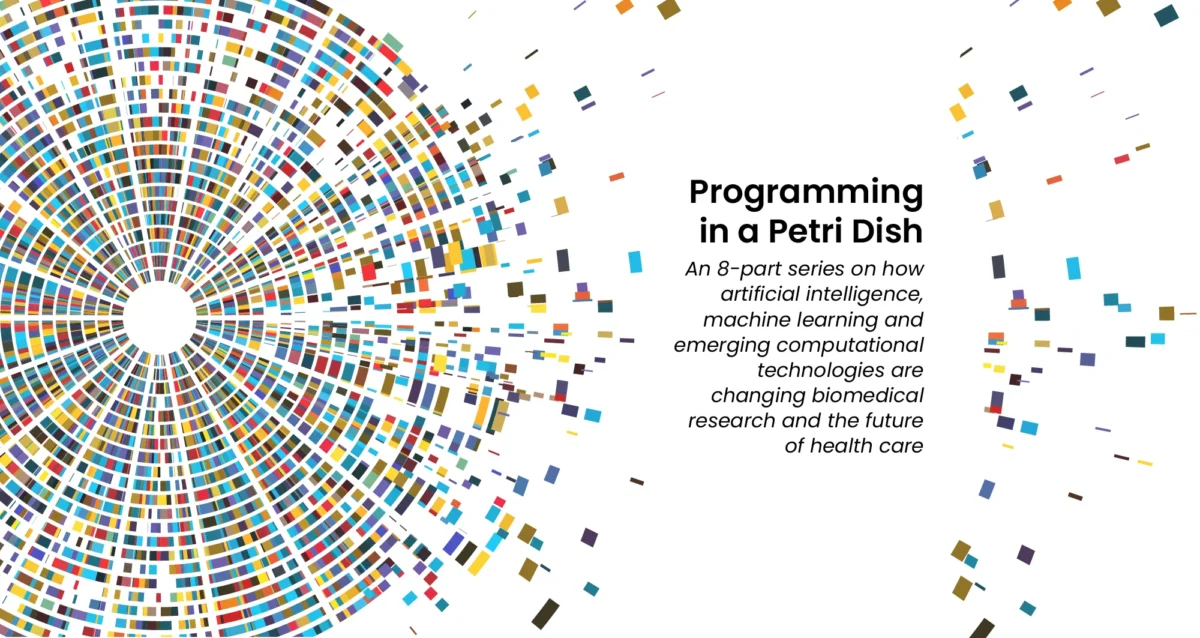 Aug 20, 2024
Aug 20, 2024Mapping the human body to better treat disease
Aug 20, 2024Scientists are investigating the inner workings of our bodies and the cells within them at an unprecedented level of detail.
 Aug 13, 2024
Aug 13, 2024Dodging AI and other computational biology dangers
Aug 13, 2024Sanford Burnham Prebys scientists say that understanding the potential pitfalls of using artificial intelligence and computational biology techniques in biomedical…
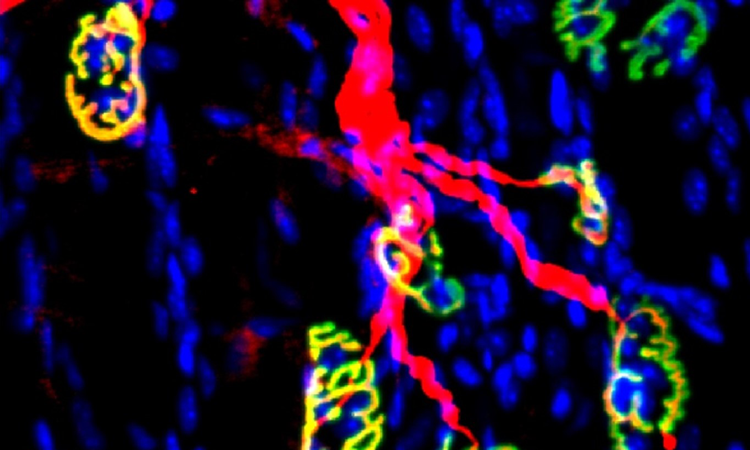 Oct 11, 2023
Oct 11, 2023Inhibiting an enzyme associated with aging could help damaged nerves regrow and restore strength
Oct 11, 2023New research has demonstrated a way to accelerate recovery from peripheral nerve injury by targeting an enzyme that was thought…
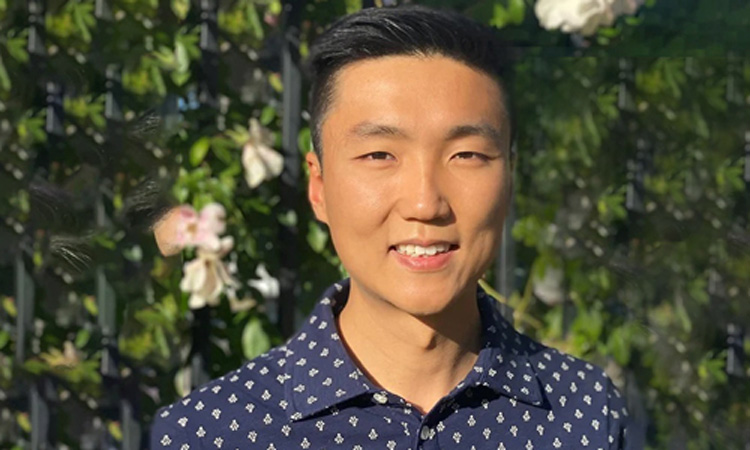 Jan 26, 2023
Jan 26, 2023Three big questions for cutting-edge biologist Will Wang
Jan 26, 2023Will Wang’s spatial omics approach to studying neuromuscular diseases is unique.
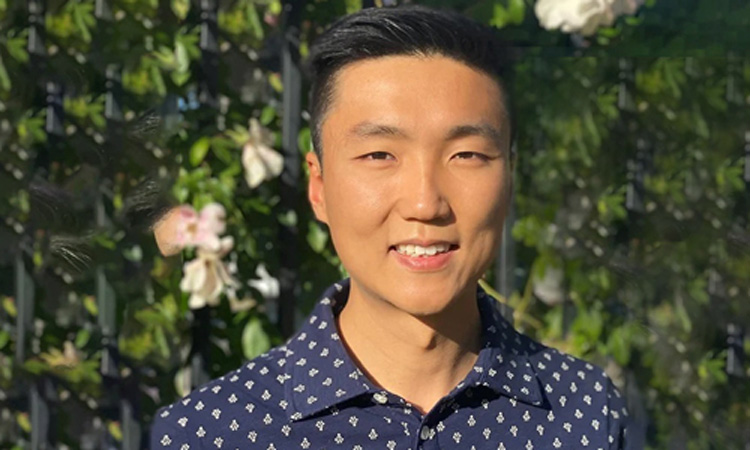 Nov 23, 2022
Nov 23, 2022Yu Xin (Will) Wang joins Sanford Burnham Prebys to advance regenerative medicine
Nov 23, 2022Molecular biologist Yu Xin (Will) Wang, PhD, has joined Sanford Burnham Prebys as an assistant professor in the Development, Aging,…
Kevin Tharp studies the interplay between mitochondrial metabolism and the physical properties of the tumor microenvironment, using genetically engineered mouse models and bioengineered human tumor models to define the mitochondrial programming unique to cancer cells in the tumor microenvironment.
His goal is to develop new therapies that block the metabolic adaptations that cancer cells use to metastasize, a major cause of cancer-associated mortality.
“I study how cells make decisions about their metabolic programming, which I expect will enable us to develop new therapeutics against metastatic tumor cells.”
Tharp previously worked as a postdoctoral scholar in the Center for Bioengineering & Tissue Regeneration at UCSF Health.
He completed his PhD in metabolic biology at UC Berkeley and his Bachelor of Science degree in biochemistry and molecular biology at UC Santa Cruz, where he graduated with honors and the Dean’s Award in Chemistry.
He has received meritorious funding awards from the Sandler Foundation and the National Institutes of Health/National Cancer Institute for his postdoctoral research.
Phenomena or Processes
Actin Cytoskeleton, Adipocyte Differentiation, Aging, Apoptosis and Cell Death, Cancer Biology, Cancer Metabolism, Cancer-Associated Glycans, Cell Adhesion and Migration, Cell Differentiation, Cell Signaling, Combinatorial Therapies, Damage-Associated Molecular Patterns, Extracellular Matrix, Glycosylation, Inflammation, Innate Immunity, Integrins, Metabolic Networks, Mitochondrial Biology, Organic/Synthetic/Medicinal Chemistry, Tumor Microenvironment, Tumorigenesis
Anatomical Systems and Sites
Adipose Tissue, General Cell Biology, Immune System and Inflammation, Mammary Gland, Vasculature
Research Models
C. elegans, Human, Human Cell Lines, Mouse, Mouse Cell Lines, Primary Cells
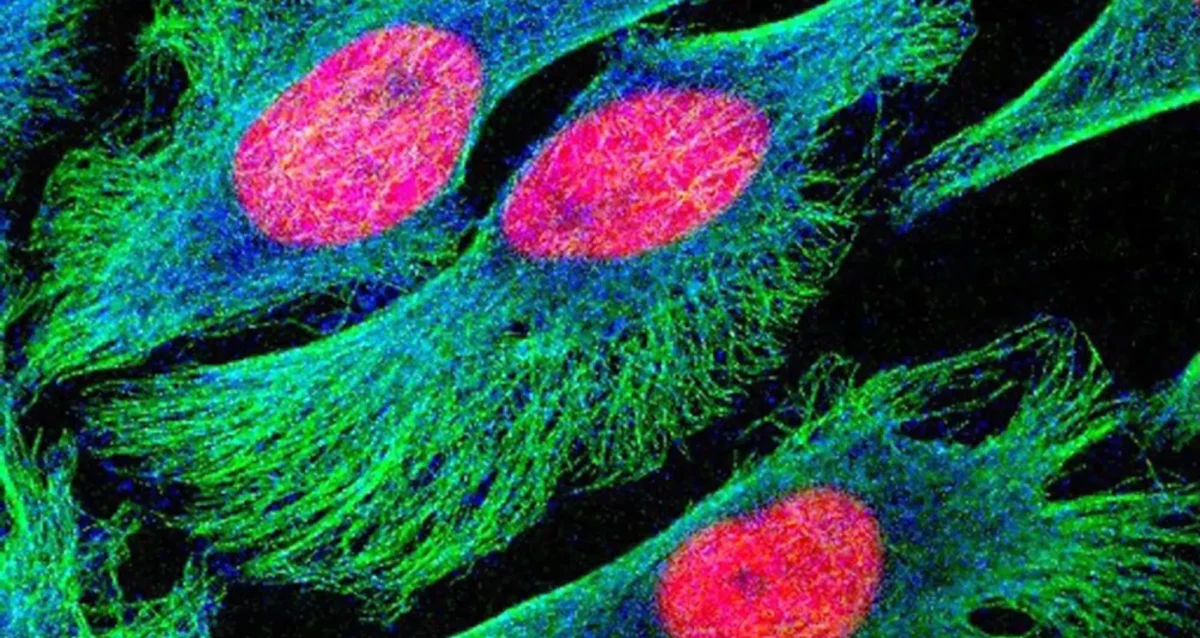 Nov 4, 2024
Nov 4, 2024The implastic nature of plastic culture
Nov 4, 2024There is an art (and science) to creating cell culture models that reflect the complexities of disease.
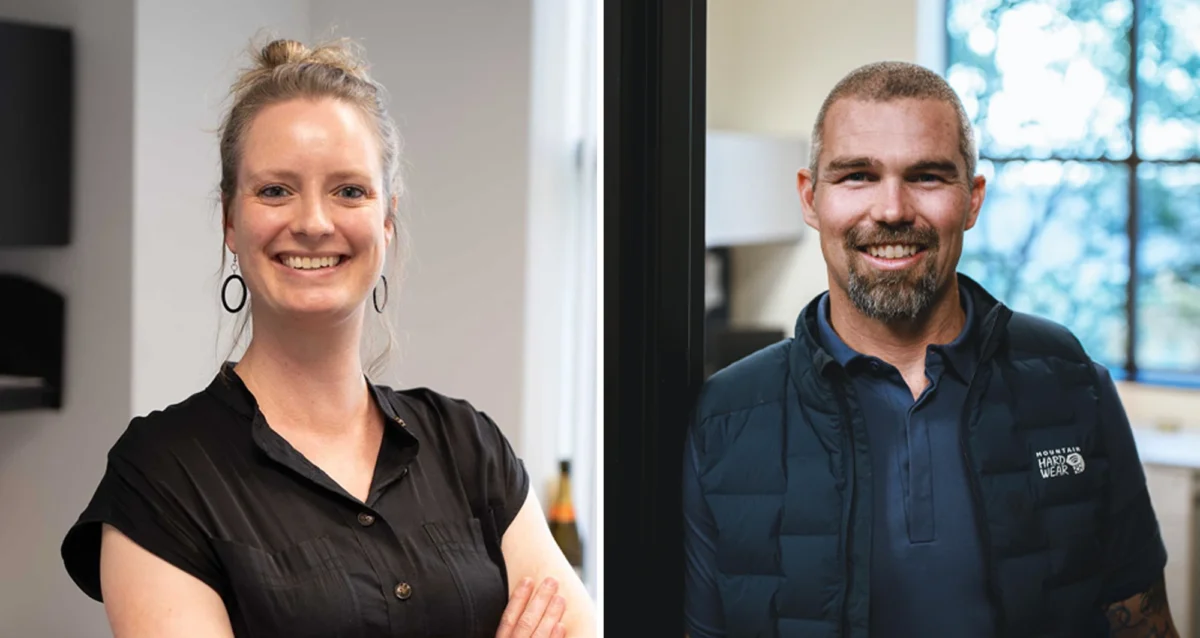 Oct 31, 2024
Oct 31, 2024Raising awareness of breast cancer research at Sanford Burnham Prebys
Oct 31, 2024The October Science Connect Series event was themed around Breast Cancer Awareness Month.
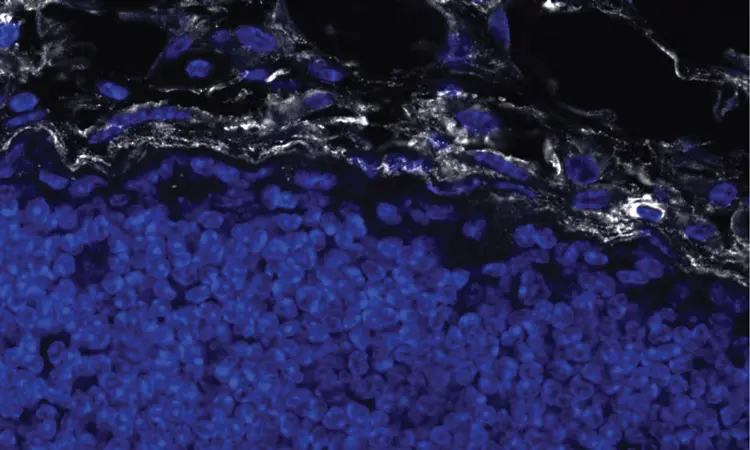 Jun 4, 2024
Jun 4, 2024How tumor stiffness alters immune cell behavior to escape destruction
Jun 4, 2024Immunotherapy is based on harnessing a person’s own immune system to attack cancer cells. However, patients with certain tumors do…
 Mar 25, 2024
Mar 25, 2024Seminar Series: extrachromosomal DNA and the metabolic circuits of cancer immune suppression
Mar 25, 2024The ongoing Sanford Burnham Prebys seminar series will feature a pair of speakers on March 27, from noon to 1p.m.,…
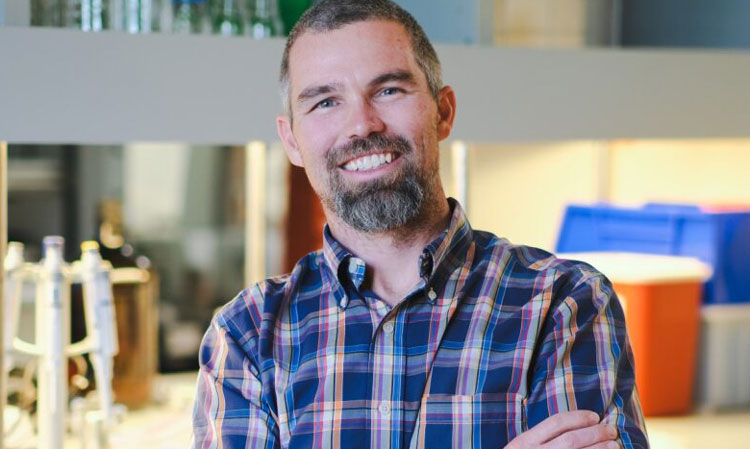 Dec 18, 2023
Dec 18, 2023When tumors manipulate their mitochondria, Kevin Tharp will be there to stop them
Dec 18, 2023Newly arrived at Sanford Burnham Prebys, Tharp will look at how cellular mechanics can be leveraged to create more effective…
 Nov 2, 2023
Nov 2, 2023La Jolla’s Sanford Burnham Prebys adding six scientists in hopes of launching new era of collaboration
Nov 2, 2023The newcomers, brought in with help from a $70 million donation, are versed in different technologies that can be applied…
After a successful teaching career at the University of Michigan I have had the privilege to “reboot” my research career at Sanford Burnham Prebys where I have had the opportunity to develop novel methodologies to understand cardiomyopathy. I have also had the opportunity to work with NASA scientists to do experiments on the International Space Station.
Education
Postdoctoral Fellow, Stanford University, Palo Alto, CA, Neurochemistry
Postdoctoral Fellow, University of Texas Medical School, Houston, TX, Neuroscience NIMH
PhD, Wesleyan University, Middletown, CT, Neuroscience NIMH
B.A., Lehigh University, Bethlehem, PA, Biology
Prestigious Runding Awards or Major Collaborative Grants
2015-2020: NIH R01 HL132241-01A1 – Using Drosophila genetics to identify molecular links between ion channel dysfunction and pathological cardiac remodeling. (PI) 2013-2018 NASA NRA #NNH12ZTT001N – The effects of microgravity on cardiac function, structure and gene expression using the Drosophila model. (Co-I)
Honor and Awards
2014: Space Florida International Space Station Research Competition Winner – Co-investigator – One of three Basic Research proposals selected for launch aboard SpaceX3 – Mission completed, live flies returned on May 18,2014
2001: Excellence in Teaching Award, University of Michigan
1997: Excellence in Teaching Award, University of Michigan
1986-1988: National Institute of Mental Health Fellowship
1983-1985: National Institute of Mental Health Fellowship
1981: Sigma Xi Research Award 1980 MBL Scholarship, Neural Systems and Behavior Course
1971-1975: National Merit Scholarship, Lehigh University
Board Appointments
2018-present: Board member American Society for Gravitational and Space Research
Related Disease
Aging, Aging-Related Diseases, Atrial Fibrillation, Cardiac Fibrosis, Cardiomyopathies, Heart Disease, Metabolic Syndrome, Molecular Biology
Phenomena or Processes
Actin Cytoskeleton, Calcium Signaling, Cardiovascular Biology, Cell Signaling, Extracellular Matrix, Fuel Metabolism, Integrins, Metabolic Networks, Phosphorylation, Stress Response Pathways
Anatomical Systems and Sites
Cardiovascular System, Heart
Research Models
Drosophila, Larval Zebrafish Heart, Zebrafish
Techniques and Technologies
Biophysiology, Cellular and Molecular Imaging, Fluorescence Microscopy, Gene Silencing, Genetics, In vivo Modeling, Ion Channels, Live Imaging, Microarrays, Microscopy and Imaging, Molecular Genetics, RNA Interference (RNAi), Semi-automated Optical Heartbeat Analysis (SOHA), Systems Biology, Transgenic Organisms
The Ocorr Lab is investigating the cellular and molecular basis of adult heart function and cardiomyopathies using the genetic model system Drosophila.
We use functional, electrophysiological, biochemical and immunohistochemical techniques that allow us to examine the roles of genes and gene products in cardiac channelopathies and stress-related cardiomyopathies.
Our lab pioneered the development of a novel methodology (Semi-automatic Optical Heartbeat Analysis, SOHA) that permits the quantification of heartbeat parameters in model systems with small hearts.
Using this system we have identified several ion channels in the fly heart that play prominent roles in repolarization of the human heart and cause arrhythmia in both the fly and in humans when mutated. We also have developed a number of other disease models including a diabetic-like cardiomyopathy induced by high sugar diet and hypoxia-induced cardiomyopathy.
Recently we have begun collaborations with NASA (by winning a Space Florida International Space Station Research Competition). We are using the fly to uncover the molecular/cellular basis for cardiac and muscle atrophy in astronauts exposed to extended periods of microgravity despite extensive exercise regimes aboard the ISS. Our flies were launched aboard SpaceX 3 for a month-long exposure to micro-gravity.
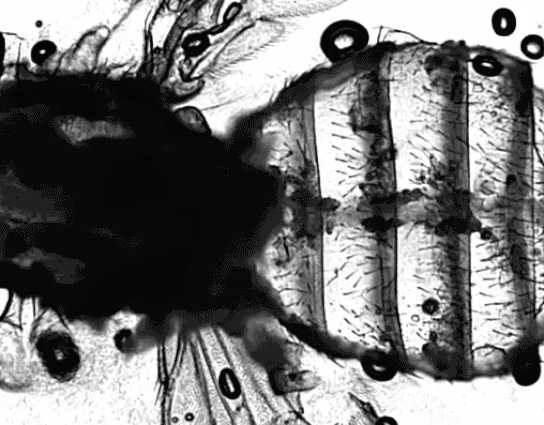
Karen Ocorr’s Research Report
My lab is working to understand the cellular and molecular basis of heart disease. One project is focused on the genetic basis of Atrial Fibrillation. This project is a collaborative one with the lab of Alexandre Colas. We are combining two model systems, the fly in my lab and human induced cardiomyocytes in his lab, to identify AFib genes that have been implicated from patient studies. Another project focuses on the role of metabolism in cardiomyopathies. This is because obesity and metabolic syndrome are linked to an increased risk of heart disease. We are studying the role of a key metabolic signaling molecule in hypertrophic cardiomyopathy. A separate effort is focused on the role of gravity in heart function. These studies will provide important information for future habitants of colonies on the moon and Mars. But they are also relevant to patients who are bedridden and to patients with muscle wasting (sarcopenia).
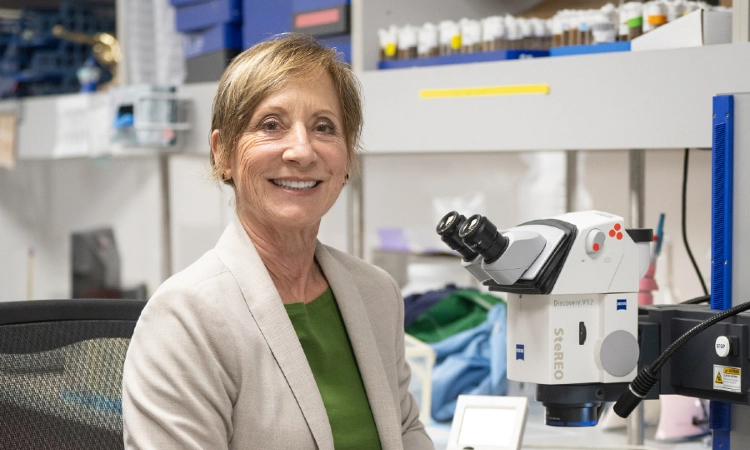 Aug 2, 2024
Aug 2, 2024Controlling thickness in fruit fly hearts reveals new pathway for heart disease
Aug 2, 2024A new study in Cell Reports details how a protein previously associated with regulating metabolism in the liver also plays…
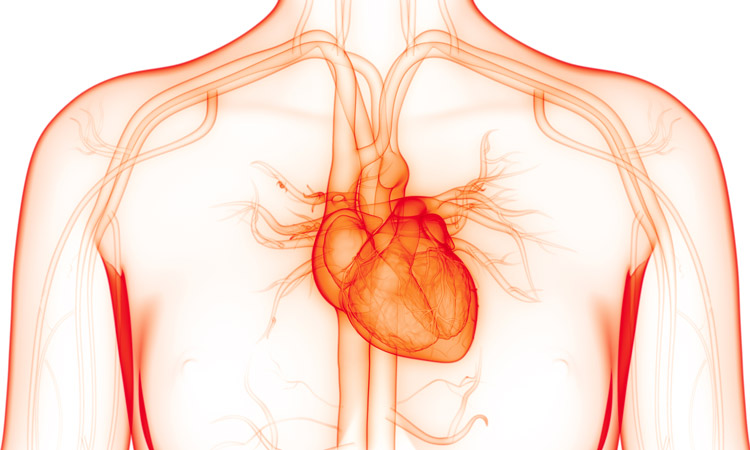 Aug 15, 2023
Aug 15, 2023Scientists unite to get to the heart of AFib
Aug 15, 2023A collaborative study led by Institute researchers is paving the way to identifying gene networks that cause atrial fibrillation (AFib),…
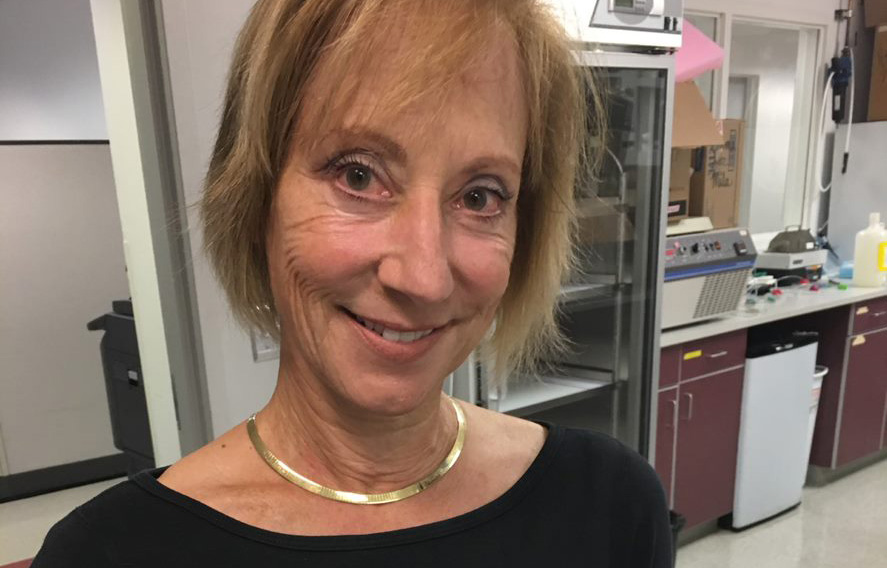 Sep 28, 2021
Sep 28, 2021NASA awards $2 million to study effects of low gravity on muscle and neuron function
Sep 28, 2021As part of their larger initiative to understand the effects of space conditions on different organisms, NASA has awarded $2…
 Dec 14, 2020
Dec 14, 2020Our top 10 discoveries of 2020
Dec 14, 2020This year required dedication, patience and perseverance as we all adjusted to a new normal—and we’re proud that our scientists
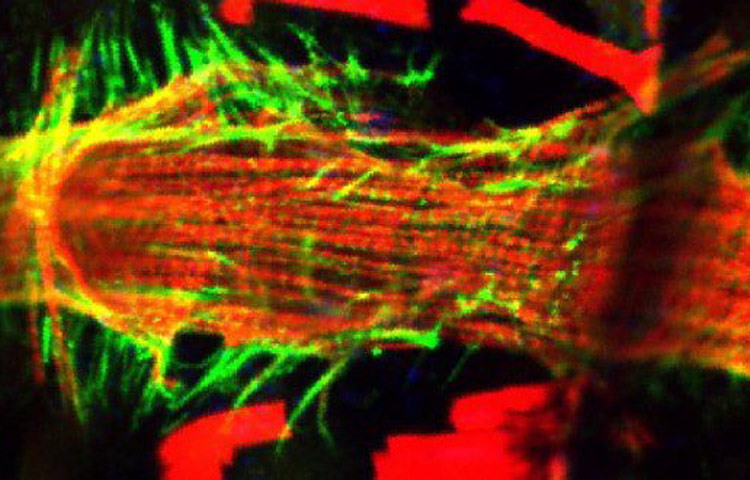 Nov 23, 2020
Nov 23, 2020Fruit flies reveal new insights into space travel’s effect on the heart
Nov 23, 2020Scientists identify protein production changes in the space flies that weren’t on the radar of heart researchers—opening new avenues for…
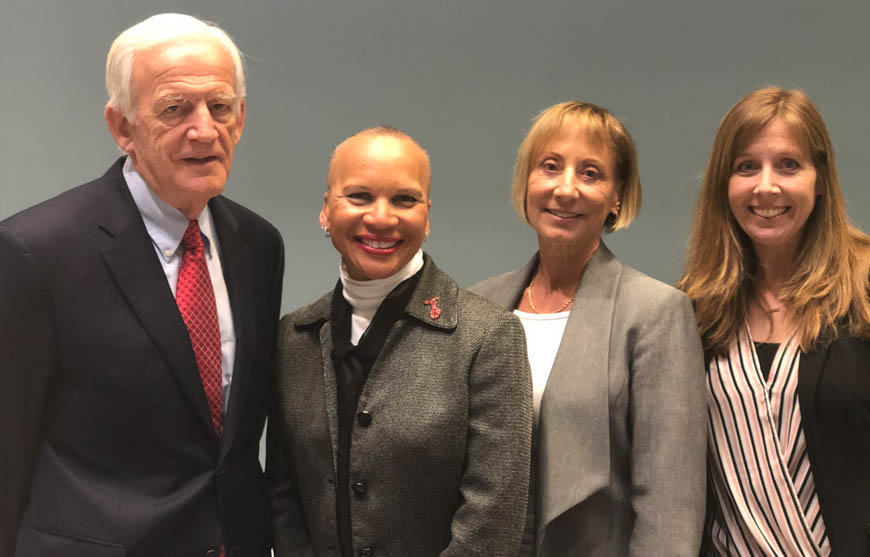 Feb 15, 2019
Feb 15, 20195 takeaways from Insights: Heart Disease
Feb 15, 2019It’s easy to forget about the fist-sized organ in our chest. But the heart is arguably the most important muscle
After receiving his early training in clinical chemistry/biochemistry at the University of Buenos Aires, Argentina, Dr. Millán first joined the La Jolla Cancer Research Foundation (LJCRF) in 1977, the predecessor of Sanford Burnham Prebys, as a trainee in clinical enzymology. He completed his PhD studies in Medical Biochemistry at the University of Umeå, Sweden and after post-doctoral stints in Copenhagen and LJCRF he was appointed to the faculty at SBP in 1986. He served as Professor of Medical Genetics in the Department of Medical Biosciences at his alma mater, Umeå University, Sweden, from 1995-2000. He was appointed Sanford Investigator at the Sanford Children’s Health Research Center at Sanford Burnham Prebys in 2008.
Honors and Recognition
2018: ASBMR Lawrence G. Raisz Award for Pre-clinical Research.
2001: Gold Medal of the Royal Academy of Medicine and Surgery, Murcia, Spain
1992: Honorary title of AcadémicoCorresponsal at the Royal Academy of Medicine and Surgery, Murcia, Spain.
Other Affiliations
Member, Scientific Advisory Board, Soft Bones
Related Disease
Arthritis, Bone Mineralization Disorders, Cardiovascular Diseases, Colorectal Cancer, Crohn’s Disease (Colitis), Heart Disease, Inherited Disorders, Metabolic Syndrome, Peripheral Vascular Disease, Testicular Cancer
Phenomena or Processes
Cardiovascular Biology, Disease Therapies, Extracellular Matrix, Protein Structure-Function Relationships
Anatomical Systems and Sites
Cardiovascular System, Musculoskeletal System, Vasculature
Research Models
Mouse
The Millán laboratory works on understanding the mechanisms that control normal skeletal and dental mineralization and elucidating the pathophysiological abnormalities that lead to heritable soft bones conditions such as Hypophosphatasia (HPP) and to soft-tissue calcification, including vascular calcification, that is a hallmark in patients affected by a variety of rare genetic diseases as well as in chronic kidney disease. Dr. Millán’s research has already contributed to the implementation of a novel therapy for HPP, a genetic disease caused by deficiency in tissue-nonspecific alkaline phosphatase (TNAP) function, that leads to accumulation in the extracellular space of inorganic pyrophosphate (PPi), a potent inhibitor of mineralization. HPP is characterized by defective mineralization of bones (rickets or osteomalacia), and teeth that display a lack of acellular cementum, hypomineralized dentin and enamel, and periodontal defects. Dr. Millán’s team has demonstrated the effectiveness of enzyme replacement therapy using mineral-targeted recombinant TNAP (asfotase alfa) to prevent the skeletal and dental defects in the TNAP knockout mouse model of infantile HPP. This therapy was approved in 2015 for the treatment of patients with pediatric-onset HPP.
Current efforts, in collaboration with Professor Miyake’s group in Japan (https://www.nms-gt.org/en/members), focus on developing gene therapy as an alternative approach to treat HPP. Dr. Millán’s group has also identified key pathophysiological changes that lead to calcification of the arteries in animal models of generalized arterial calcification of infancy, pseudoxanthoma elasticum and related genetic diseases as well as in animal models of chronic kidney disease. His group, in collaboration with scientists at the Conrad Prebys Center for Chemical Genomics at Sanford Burnham Prebys, has developed proprietary compounds able to ameliorate the soft-tissue calcification in these conditions and clinical trials are now underway using these first-in-class small molecule inhibitors.
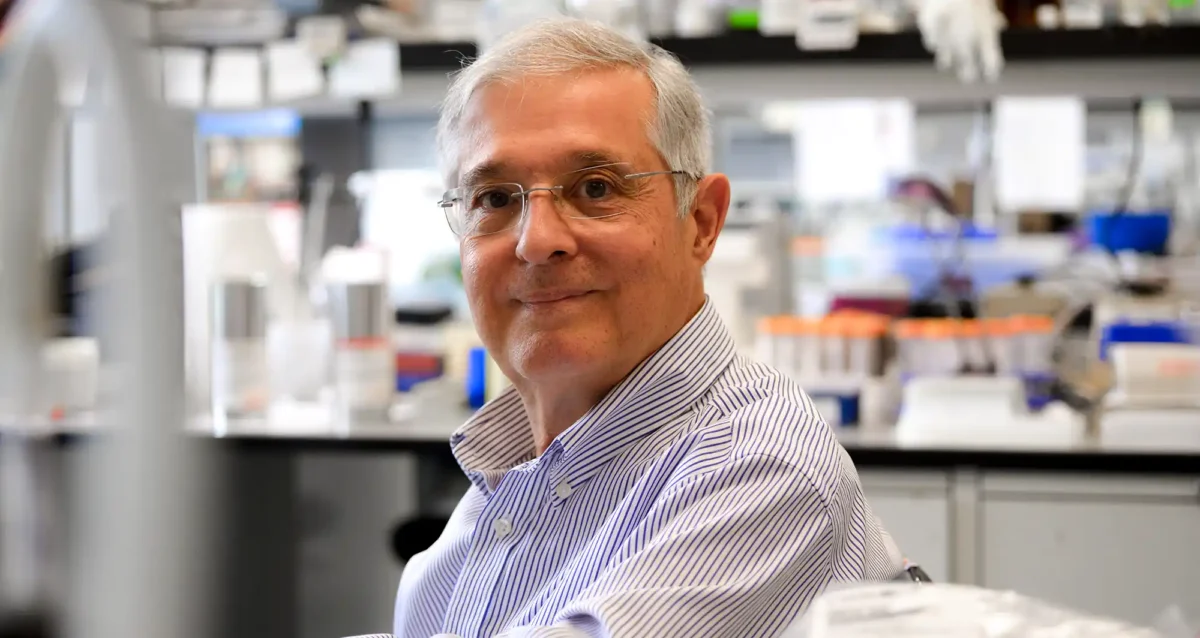 Feb 3, 2025
Feb 3, 2025Gene therapy may be “one shot stop” for rare bone disease
Feb 3, 2025New study shows a single shot may be able to treat a skeletal disease currently requiring nearly daily injections.
 Jul 21, 2023
Jul 21, 2023José Luis Millán joins international initiative to study calcification in aging
Jul 21, 2023José Luis Millán, PhD, has joined a five-year, $13 million program that will study misplaced calcification in the eyes and…
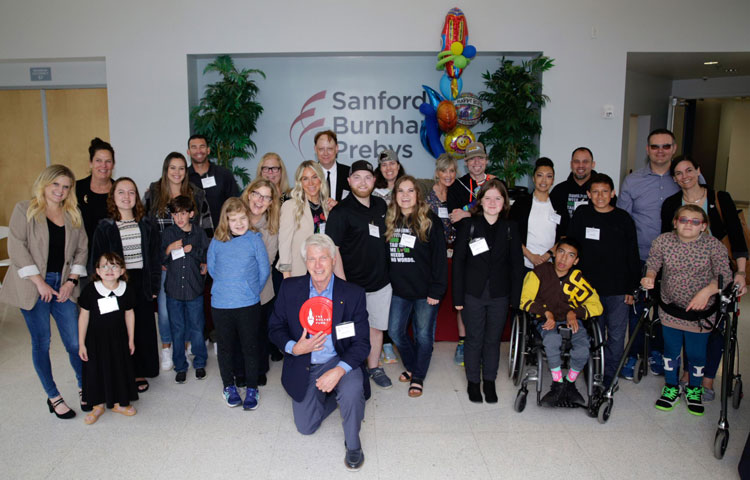 May 10, 2023
May 10, 2023Where science meets patients: Sanford Children’s Research Center hosts inaugural symposium
May 10, 2023The event celebrated 16 years of progress at the Center and connected scientists with the people most impacted by their work.
 Dec 19, 2022
Dec 19, 2022Sanford Burnham Prebys announces start of Phase 2 clinical trial of DS-1211 in individuals with PseudoXanthoma Elasticum
Dec 19, 2022San Diego Biotech Networks News
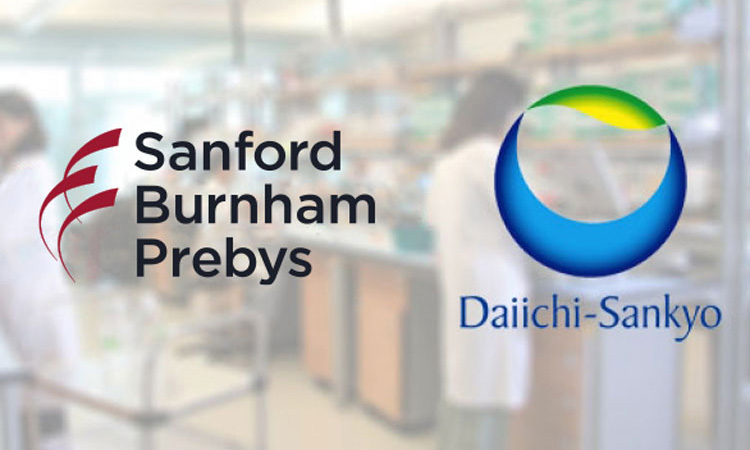 Nov 30, 2022
Nov 30, 2022Sanford Burnham Prebys announces start of Phase 2 clinical trial of DS-1211 in individuals with pseudoxanthoma elasticum
Nov 30, 2022A Phase 2 clinical trial has started of DS-1211 in individuals with pseudoxanthoma elasticum (PXE), a rare multisystem genetic disease…
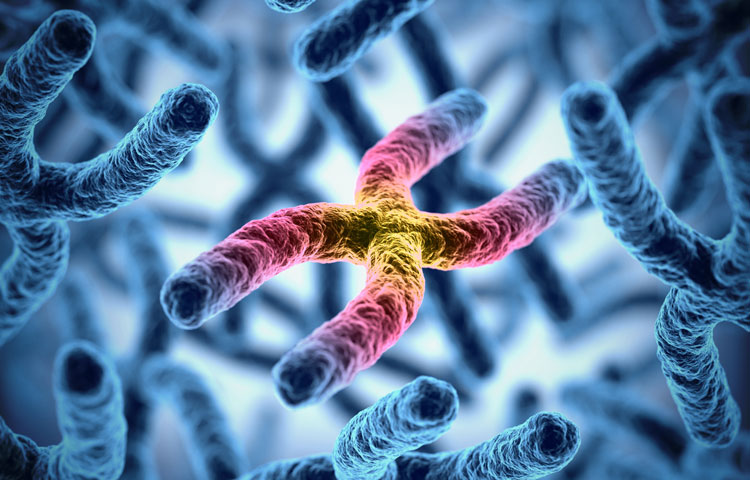 Jun 7, 2021
Jun 7, 2021Study supports gene therapy as a promising treatment for soft bone disease
Jun 7, 2021A single dose of AAV8-TNAP-D10 may be safe and effective for hypophosphatasia A preclinical study led by scientists at Sanford
